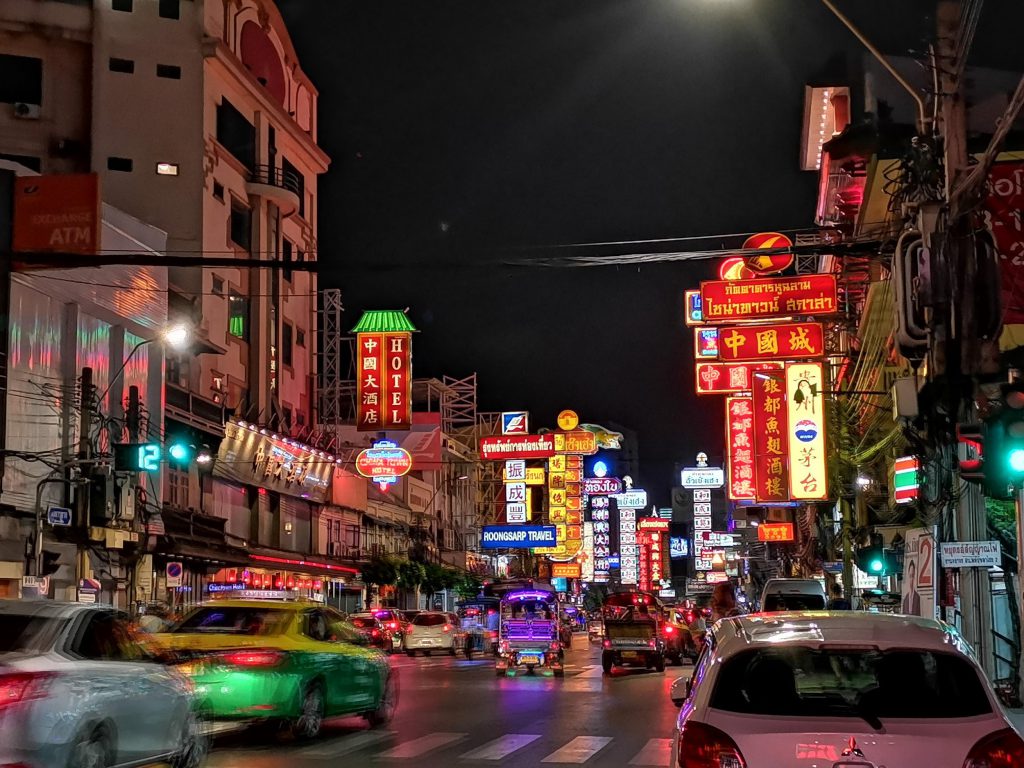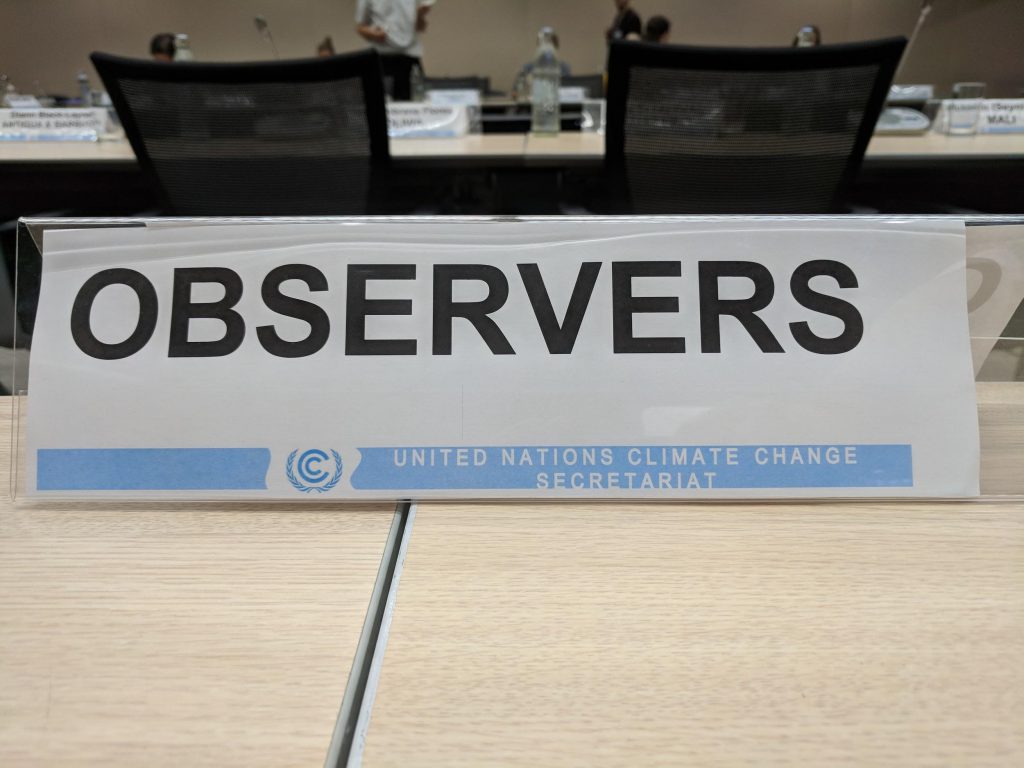The Department of Geography’s PhD small grants supported two trips at the early scoping stages of my fieldwork to Bangkok, Thailand.
I attended the 18th Meeting of the UNFCCC Standing Committee on Finance (SCF) from 10-12 September, taking place right after a preparatory meeting for COP24 taking place later in the year in Katowice. I represented The Research and Independent Non-Governmental Organisations (RINGO) and attended as an observer. The build up to the meeting was exciting as I was reading about the progress and sticking points in the meeting from 4-9 September in Bangkok as I prepared for the SCF meeting. At the same time, as I have not been following in great detail the UNFCCC process, I also realised the learning curve to all the processes and technicalities would be steep. As I arrived at Bangkok, I was both excited and nervous.
I was lucky that this meeting took place in Bangkok, Thailand because most intermediary meetings between COPs take place in Bonn, Germany, which would have been too far for me to travel to from Singapore, where I’m currently based. Learning from other meeting participants, when a UNFCCC meeting takes place in Bonn, the entire town would be filled with climate diplomats. It was clearly not the case when I arrived in Bangkok as it seemed to have maintained business as usual, although I later learned that NGO and local groups were protesting outside the UNFCCC offices calling for more government protection for vulnerable, low-lying cities such as Bangkok.

The SCF finance offered an aspect of high-level decision making in climate finance that my research does not touch upon in detail. The meeting shed light on the complex detailed functioning of aspects of climate finance that I have taken for granted, for example, the range of public-private partnerships designated for specific mitigation, adaptation and resilience-building purposes, as well as any other funds and climate finance mechanisms governed under the UNFCCC framework. The tension between developed countries reluctant to agree to take on more projects for fears of increased budgetary burdens and developing countries eager to propose new initiatives to increase their budget allowance was also clear also featured consistently in the meeting.
I experienced the frustrations of high-level decision first hand: diplomats trying to distract and drag on conversations so important topics would not be discussed, different vested interests delaying the agreement of funding mechanisms, and the physical exhaustion of the diplomats after attending two weeks of negotiations. Another interesting observation was that the three day SCF meeting was cut short to only a day and a half to speed up the discussion. I later learnt that the decision was made to avoid certain countries with strong vested interest in fossil fuels from dominating and delaying process.

Frustrations of the realities of climate negotiations aside, I met a very inspiring group of young people advocating for developing countries’ interests from YOUNGO, as well as veterans in the UNFCCC process, and various NGOs and think tanks from around the world with a stake in climate finance. The meeting provided an important networking opportunity for currently ongoing fieldwork investigating the development of climate finance in Southeast Asia. The UNFCCC discussions also provided important wider international regulatory and development context of climate finance, which have heavily influenced how the private sector engages in the issue. Thank you King’s Geography for supporting this trip!
Follow me on Twitter @feliciahmliu for my latest research updates!